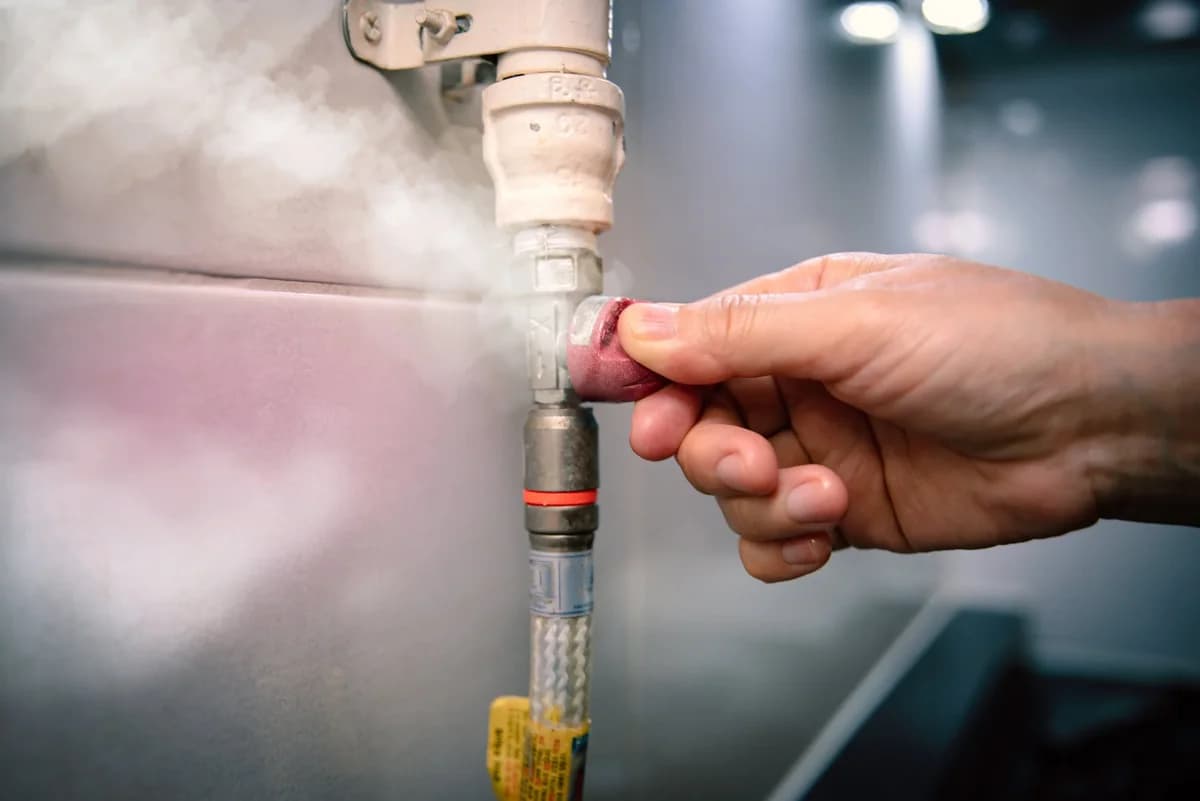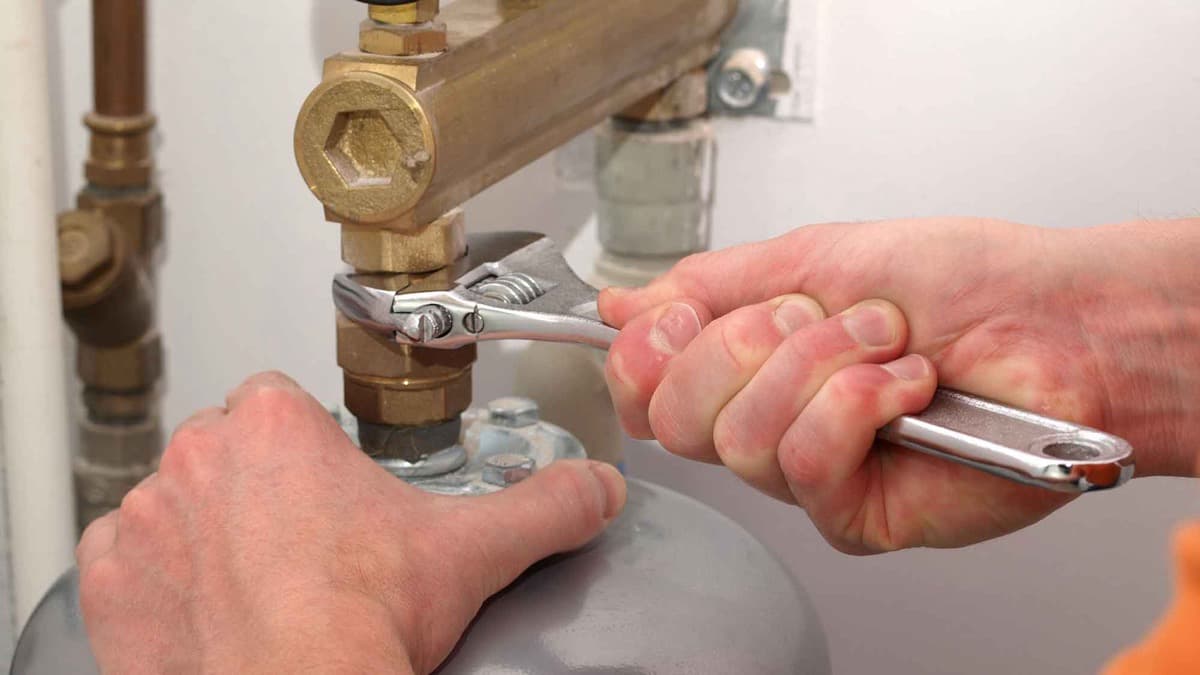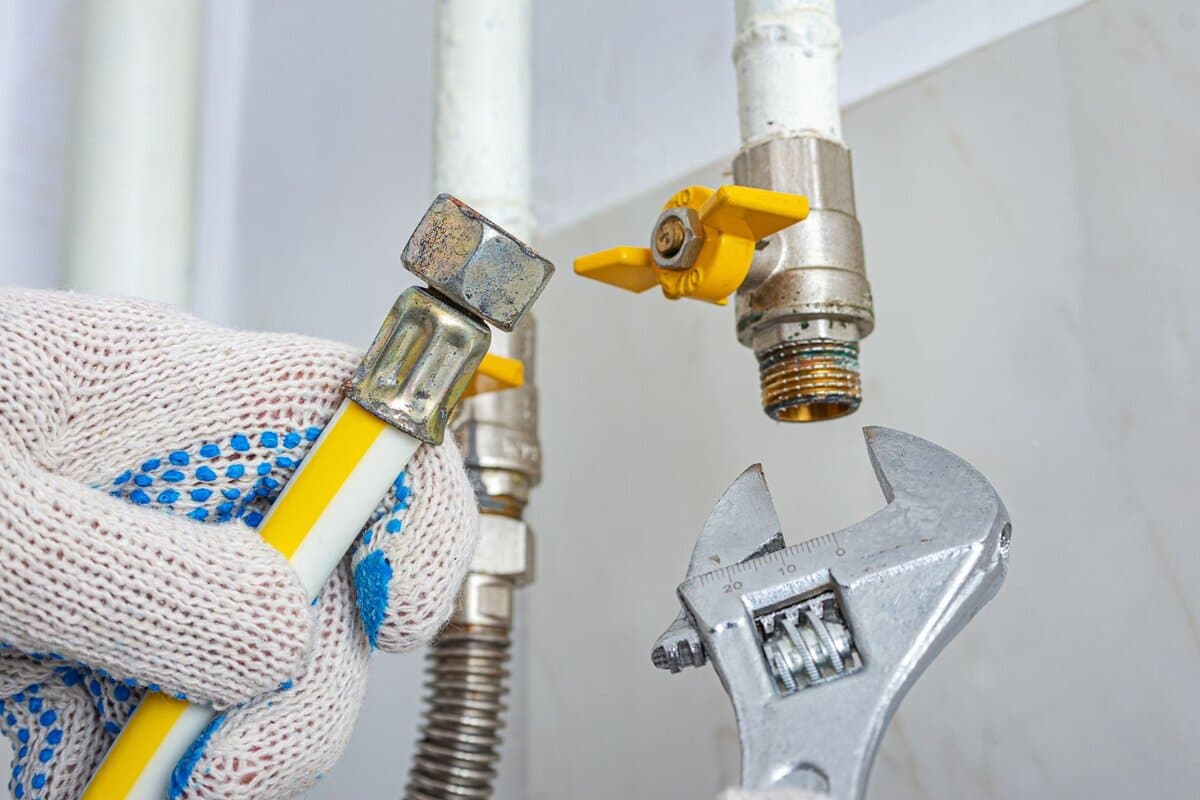
Emergency Gas Leak Detection Sydney
Smell gas or suspect a leak? Panther Plumbing Group provides rapid gas leak detection using advanced equipment to keep your property safe. Our licensed gas fitters respond 24/7 with electronic sniffers, thermal imaging, and tracer gas technology.
Detection Capabilities
Advanced Detectors
Electronic sniffers, manometers, thermal imaging, and tracer gas
Safety Controls
Immediate isolation, ventilation, and area securing before repairs
Immediate Repairs
Leaks repaired on-site and pressure-tested before we leave
Compliance Reports
Detailed documentation for insurance, strata, and safety records
24/7 Emergency Gas Leak Detection & Immediate Repairs
Gas leaks demand urgent professional attention—every minute counts when flammable gas escapes into your property. Panther Plumbing Group's licensed gas fitters respond 24/7 with advanced electronic detection equipment, thermal imaging cameras, and tracer gas technology to locate leaks accurately without unnecessary demolition. We secure your property, repair leaks immediately, pressure test systems to confirm integrity, and provide comprehensive compliance documentation for insurance and safety records.
Advanced Detection Technology
Electronic gas sniffers detect natural gas and LPG at 50 parts per million. Thermal imaging reveals hidden leaks behind walls. Tracer gas technology pinpoints underground leaks without excavation. Professional equipment eliminates guesswork.
Immediate Emergency Response
24/7 availability with typical 60-90 minute response across Sydney metro. Fully stocked service vehicles carry leak detection equipment and repair materials enabling same-visit leak location and repairs for immediate safety restoration.
Same-Visit Leak Repairs
Comprehensive gas fitting materials on board including copper pipe, brass fittings, isolation valves, and brazing equipment. Leaks repaired immediately after detection with pressure testing confirming leak-free systems before departure.
Compliance Documentation
Detailed leak detection reports, photographic evidence, pressure test results, and Certificates of Compliance (Form 71) for NSW Fair Trading. Documentation satisfies insurance claims, strata requirements, and safety audits.
Advanced Gas Leak Detection Methods
Professional equipment for accurate, non-invasive leak location
Electronic Gas Detectors
Combustible gas sensors detect natural gas and LPG at concentrations as low as 50 parts per million. Our handheld electronic sniffers identify leaks in pipework, appliances, joints, and fittings with pinpoint accuracy, allowing targeted repairs without unnecessary demolition.
Pressure Testing Equipment
Digital manometers test system integrity by pressurizing gas lines and monitoring for pressure drops over time. Holding 7 kPa pressure for 15+ minutes confirms leak-free installations. We test before and after repairs, providing documented proof of system integrity.
Tracer Gas Technology
For concealed leaks in walls, ceilings, or underground, we inject safe tracer gas mixtures into isolated pipe sections. Specialised detectors identify where tracer gas emerges, revealing exact leak locations without exploratory demolition. Minimizes property damage during leak investigation.
Thermal Imaging Cameras
Infrared cameras detect temperature variations caused by gas escaping from pressurized pipes. Cool spots indicate expansion of escaping gas, while moisture from condensation appears differently than surrounding surfaces. Thermal imaging maps leak patterns behind surfaces non-invasively.
Soapy Water & Visual Inspection
Traditional leak detection remains effective for accessible joints and fittings. Professional-grade leak detection fluid applied to connections bubbles when gas escapes, confirming leak locations. Combined with visual inspection of corroded pipes, damaged fittings, and improper installations.
Flow Rate Analysis
Comparing expected gas consumption with meter readings identifies abnormal usage indicating leaks. Flow testing with all appliances isolated detects continuous flow from system leaks. Accurate for finding small, persistent leaks that accumulate significant gas loss over time.
When You Need Emergency Gas Leak Detection
Recognise these urgent scenarios requiring immediate professional response
Smell Gas Odour
Natural gas and LPG are odorised with mercaptan—a distinctive rotten egg smell alerting you to leaks. Never ignore gas odours. Turn off gas supply at meter or cylinder, ventilate area, avoid electrical switches and flames, evacuate if smell is strong, and call us immediately for emergency detection and repairs.
Hissing Sound Near Gas Lines
Audible hissing or whistling near gas pipes, appliances, or meters indicates pressurized gas escaping. Larger leaks create louder sounds easily heard in quiet environments. Even small hisses represent significant safety risks requiring immediate professional attention, isolation, and repair.
Dead Vegetation Over Gas Lines
Underground gas leaks kill grass, plants, and tree roots directly above buried pipes. Unexplained dead patches, yellowing vegetation, or soil bubbling during rain indicate gas accumulation in ground. Requires urgent excavation, leak detection, and pipe replacement before indoor gas migration occurs.
Physical Symptoms
Gas exposure causes headaches, dizziness, nausea, fatigue, breathing difficulties, and in severe cases, unconsciousness. If multiple occupants experience unexplained symptoms improving when away from property, suspect gas leaks. Evacuate immediately, seek medical attention, and request emergency gas detection.
Higher Than Normal Gas Bills
Unexplained increases in gas consumption without corresponding usage changes suggest system leaks wasting gas continuously. Small leaks accumulate substantial losses over billing periods. Schedule comprehensive leak detection identifying hidden leaks before they escalate to dangerous levels or cause major property damage.
Pre-Purchase & Strata Inspections
Property purchases, strata compliance audits, insurance requirements, and commercial lease conditions often mandate gas safety inspections. Our comprehensive testing identifies existing leaks, deteriorated components, non-compliant installations, and safety risks, providing detailed reports for stakeholder requirements.
Gas Leak Detection Response Process
Systematic approach minimising risk and ensuring safety
Emergency Call & Safety Guidance
When you call reporting suspected gas leaks, our operators provide immediate safety instructions: shut off gas supply at meter or cylinder, extinguish all flames including pilot lights, avoid operating electrical switches, open windows and doors for ventilation, evacuate if odour is strong, and move to safe distance. We dispatch nearest licensed gas fitter immediately with estimated arrival time.
Rapid Site Attendance
Our emergency gas fitters arrive fully equipped with electronic leak detectors, thermal cameras, pressure testing equipment, and repair materials. Average response time for metro Sydney is 60 minutes, with priority dispatch for severe leaks or symptomatic occupants. Upon arrival, we assess site safety, confirm gas is isolated, verify adequate ventilation, and begin systematic leak detection.
Comprehensive System Testing
Entire gas system is surveyed using multiple detection methods. Electronic sniffers test all accessible pipes, joints, appliances, and connections. Meter area, internal pipework, ceiling spaces, under-floor areas, and appliance connection points are inspected methodically. Thermal imaging identifies concealed leaks behind walls and slabs. Pressure testing confirms system integrity throughout property.
Leak Location & Documentation
Once leaks are identified, exact locations are marked and photographed for documentation. We assess leak severity, determine causes (corrosion, mechanical damage, poor installation, component failure), evaluate safety risks, and develop repair strategy. For insurance claims or strata reports, we document findings with photos, thermal images, and detailed descriptions of issues discovered.
Isolation & Containment
Leaking sections are isolated using existing valves or temporary isolation techniques. For large leaks, we create safe work zones with ventilation fans extracting gas to outdoor areas. Affected spaces are secured preventing ignition sources. In commercial or multi-unit buildings, we coordinate with building management informing affected occupants and arranging alternative access when required.
Immediate Repairs
Most leaks are repaired during initial callout. Damaged pipe sections are cut out and replaced with copper, TracPipe, or appropriate materials. Faulty fittings, worn flexi hoses, deteriorated regulators, or leaking appliance connections are replaced immediately. Our vans carry comprehensive pipe stock and fittings enabling same-visit completion for standard residential and commercial leak repairs.
Post-Repair Testing & Verification
After repairs, entire system is pressure tested to 7 kPa minimum for 15 minutes confirming leak-free integrity. Electronic detectors verify zero gas detection at repaired areas and throughout system. Operating pressures are checked at each appliance ensuring proper function. Gas supply is gradually restored while monitoring for any issues. Only when perfect system integrity is confirmed do we sign off repairs complete.
Certification & Prevention Advice
We issue Certificates of Compliance documenting detection findings, repairs completed, test results, and system status. Reports formatted for insurance claims include comprehensive photos, cause analysis, and recommendations. For strata properties, we provide formal reports to body corporate and affected owners. Preventative advice covers maintenance schedules, component replacement timelines, and future leak prevention strategies.
Professional Gas Detection Equipment
Industry-leading technology for accurate leak location
Combustible Gas Detectors
Handheld electronic sensors detect methane (natural gas) and propane/butane (LPG) at extremely low concentrations—down to 50 ppm. Visual and audible alarms indicate leak presence and intensity. Used to sweep entire properties systematically identifying all leak sources before repairs commence.
Digital Manometers & Pressure Gauges
High-precision pressure measurement equipment tests system integrity by monitoring pressure drops indicating leaks. Capable of detecting pressure changes as small as 0.1 kPa over 15-minute test periods. Used before and after repairs providing documented proof of leak-free systems.
Thermal Imaging Cameras
Infrared cameras visualize temperature differences invisible to naked eye. Gas escaping under pressure creates cooling through expansion—thermal imaging reveals these temperature anomalies. Particularly effective for locating concealed leaks in walls, ceilings, and underground locations without demolition.
Tracer Gas Equipment
For concealed pipe leaks inaccessible to electronic detectors, we inject safe tracer gas mixtures (hydrogen/nitrogen blend) into isolated pipe sections. Specialised detectors identify where tracer gas emerges, pinpointing exact leak locations. Minimizes exploratory excavation or demolition protecting property.
Professional Leak Detection Fluid
Commercial-grade soapy solution specifically formulated for gas leak detection. Applied to joints, fittings, and connections, bubbles form when gas escapes—even tiny leaks produce visible bubbles. Used on accessible pipework confirming electronic detector findings and verifying leak-free repairs.
Gas Flow Meters
Portable flow measurement devices quantify gas consumption rates identifying abnormal usage patterns. With all appliances isolated, any flow indicates system leaks. Helps determine leak severity and verify repairs reduced consumption to expected levels confirming leak elimination.

Why Advanced Equipment Matters
Gas leak detection requires specialised equipment beyond basic sniffers. Our investment in thermal imaging, tracer gas systems, and precision pressure testing ensures we locate leaks accurately without unnecessary property damage. Multi-method detection confirms findings, eliminating false positives and ensuring every leak is found before repairs commence.
Gas Leak Detection Costs Sydney
Transparent emergency and scheduled inspection pricing
Emergency Gas Leak Callout
24/7 emergency attendance including rapid dispatch, phone safety guidance, on-site leak detection with electronic equipment, isolation assistance, upfront repair quotation, and safety recommendations. Callout fee waived when repairs over $400 proceed.
Standard Gas Leak Detection
Comprehensive property gas leak detection during business hours. Includes complete system survey with electronic detectors, pressure testing, accessible pipework inspection, appliance connection checks, written report with findings, and repair recommendations. Ideal for pre-purchase inspections or peace of mind.
Concealed Leak Detection
Advanced detection for suspected leaks in walls, ceilings, or underground using thermal imaging and tracer gas technology. Includes pressure testing to confirm leak existence, thermal imaging survey, tracer gas injection if required, precise leak location mapping, and minimal-access repair recommendations.
Commercial Gas Safety Inspection
Mandatory safety inspections for restaurants, cafes, hospitality venues, and commercial facilities. Includes complete gas system survey, appliance testing, ventilation assessment, compliance verification against AS 5601, detailed safety report, and rectification schedule for any issues identified. Price varies by system complexity.
Strata Building Gas Audit
Comprehensive gas safety audits for apartment buildings and strata properties. Includes common area gas line inspection, individual unit connection checks (when accessible), meter installation assessment, documentation review, compliance status report for committee, and staged rectification program for identified issues.
What's Included In Every Detection Service
- ✓ 24/7 emergency response availability across Sydney
- ✓ Licensed gas fitters with 10+ years detection experience
- ✓ Professional electronic leak detection equipment
- ✓ Complete system pressure testing and verification
- ✓ Thermal imaging for concealed leak location
- ✓ Comprehensive written reports with photos
- ✓ Insurance and strata-formatted documentation
- ✓ Same-visit repairs when leaks are found
- ✓ Compliance certification for repairs completed
- ✓ Follow-up support and prevention advice
Understanding Gas Leak Risks & Safety
Essential information for protecting your property and occupants
Gas Leak Dangers
Natural gas and LPG are highly flammable. Leaking gas accumulates in enclosed spaces creating explosion risks from any ignition source—electrical switches, pilot lights, static electricity, or hot surfaces. Concentrations above 5% form explosive mixtures with air.
Beyond fire risks, gas displaces oxygen in confined areas causing asphyxiation. Carbon monoxide from incomplete combustion in faulty appliances is odourless and deadly. Chronic low-level gas exposure causes headaches, nausea, respiratory issues, and neurological effects.
Property damage from gas leaks includes contaminated soil from underground leaks, killed vegetation, corroded building materials, and insurance claim complications if leaks were ignored or improperly addressed by unlicensed persons.
Immediate Actions If You Smell Gas
DO: Immediately turn off gas at the meter or cylinder. Open all windows and doors creating cross-ventilation. Evacuate building if odour is strong. Call emergency gas services from safe location outside. Avoid creating any sparks or ignition sources.
DON'T: Never operate electrical switches—turning lights on OR off can spark. Don't use phones inside the building. Never smoke or strike matches. Don't start vehicles in garages. Don't attempt repairs yourself. Never ignore gas odours assuming they'll dissipate.
After gas emergencies, licensed gas fitters must inspect systems before restoration. DIY repairs or unqualified persons attempting fixes create insurance liability and ongoing safety risks. Always demand compliance certification after gas work.
Gas Leak Detection Case Studies
Real Sydney emergencies showing our rapid detection and repair expertise
Chatswood Restaurant Gas Leak
Chatswood, Sydney
The Situation
Restaurant staff smelled gas odour Saturday morning before opening. Kitchen manager isolated gas supply immediately but couldn't locate leak source. Commercial kitchen with multiple appliances, complex pipework, and urgent need to open for lunch service. Insurance required professional leak detection and documentation.
Detection & Response
Emergency gas fitter arrived 35 minutes after call. Electronic detector survey identified leak at corroded pipe joint behind commercial oven—inaccessible without moving heavy equipment. Used pipe freezing to isolate section, cut out corroded joint, installed new compression fitting, pressure tested entire system, and verified all appliances operating correctly.
The Outcome
Restaurant opened 45 minutes late—minimal revenue impact versus full day closure. Comprehensive detection report submitted to insurer same day. Follow-up inspection recommended replacing several aging pipe sections before next corrosion failures. Owner scheduled preventative replacement during next renovation period.
Manly Unit Underground Leak
Manly, Sydney
The Situation
Homeowner noticed dead grass patch above buried gas line leading to outdoor BBQ. No obvious odour but vegetation death suggested underground gas leak. Concerned about gas migrating into home or igniting from underground electrical cables. Required leak detection without destroying landscaped garden.
Detection & Response
Pressure tested gas line confirming 15% pressure drop over 30 minutes indicating significant leak. Injected tracer gas into isolated BBQ line. Tracer gas detector identified exact leak location 8 metres from house at corroded elbow joint. Hand-excavated around leak point minimizing garden damage. Replaced corroded galvanized steel section with protective-coated copper.
The Outcome
Leak repaired with minimal garden disturbance—0.5m² excavation versus 8m trench if leak location was guessed. Pressure testing confirmed leak elimination. Thermal imaging verified no gas accumulation in surrounding soil. Garden restored within week. Homeowner relieved serious safety risk identified before property damage or injuries occurred.
Pyrmont Apartment Building Audit
Pyrmont, Sydney
The Situation
Strata committee required gas safety audit following nearby apartment fire caused by gas leak. 42-unit building with gas to every apartment for cooking and hot water. Body corporate needed comprehensive safety assessment, compliance verification, and rectification plan for any issues. Required coordination with multiple owners and minimal disruption to residents.
Detection & Response
Conducted systematic three-day audit testing common area pipework, individual unit connections (when owners available), meter installation compliance, and appliance room ventilation. Electronic detection throughout accessible areas. Pressure tested main risers. Documented installation dates and compliance certificates for all work. Identified 6 flexi hoses exceeding lifespan, 2 non-compliant meter installations, and ventilation deficiencies in appliance room.
The Outcome
Strata committee received comprehensive 40-page safety audit report with prioritized rectification recommendations. Committee approved staged replacement program for aging components. Non-compliant items rectified within 8 weeks. Building insurance provider approved audit scope reducing premiums. Residents reassured about gas safety following thorough professional assessment.
Baulkham Hills New Home Pre-Settlement
Baulkham Hills, Sydney
The Situation
Home buyers requested pre-settlement gas safety inspection after smelling faint gas odour during final walkthrough. Builder assured buyers all gas work was certified but odour persisted. Buyers concerned about purchasing property with safety issues and potential warranty disputes if problems discovered after settlement.
Detection & Response
Comprehensive gas system inspection identified three separate issues: poorly brazed joint on cooktop supply line showing minor leak, incorrect pressure regulator on hot water system causing over-pressure, and missing compliance certificate for outdoor BBQ connection. Documented all findings with photos and pressure test results. Provided detailed report to buyers and solicitor.
The Outcome
Settlement delayed 2 weeks while builder rectified all issues. Builder's gas subcontractor repaired leaking joint, replaced incorrect regulator, and provided missing certification. Our follow-up inspection confirmed all repairs met standards. Buyers settled confidently knowing gas system was safe and fully compliant. Avoided potential insurance disputes and future safety incidents.
Gas Leak Detection FAQs
Common questions about gas leak detection and safety
What should I do if I smell gas?▼
How quickly can you respond to gas leak emergencies?▼
How do you detect hidden gas leaks?▼
Can you fix gas leaks during the same visit?▼
Do you provide reports for insurance claims?▼
How much does gas leak detection cost?▼
Should I get regular gas safety inspections?▼
Can gas leaks cause carbon monoxide poisoning?▼
Are you licensed for gas leak detection work?▼
Do you service commercial and industrial properties?▼
Complete Gas Safety Solutions
Supporting services for safe, reliable gas systems

Gas Leak Repairs
Fast repairs and pipe replacements for damaged gas lines. Emergency response 24/7 with same-day service completing repairs during initial callout.
Learn More
Gas Fitting
Install new appliances or upgrade pipework safely. Licensed gas fitters for cooktops, heaters, hot water, and commercial installations with full certification.
Learn More
Emergency Plumbing
Combine gas leak response with broader emergency services when needed. 24/7 availability for all plumbing emergencies across Sydney.
Learn MoreSydney Residents Trust Our Gas Leak Response
See how our team protected homes and businesses from dangerous gas leaks
"Smelled gas in our kitchen at 6am. Called Panther Plumbing Group and they arrived within 50 minutes. Electronic detector found leak at cooktop connection. Repaired immediately and pressure tested entire system. Professional emergency response saved the day!"
"Gas bill doubled with no usage change. Panther Plumbing Group's thermal imaging found underground leak near meter. Tracer gas pinpointed exact location—no unnecessary digging. Pipe replaced and tested. Leak detection technology impressive. Bill back to normal!"
"Heard hissing sound behind wall near our gas heater. Panther Plumbing Group's technician used thermal imaging and found corroded pipe joint in cavity. Accessed through small inspection hole, repaired leak, and sealed wall. Minimal damage, maximum expertise. Relief!"
24/7 Gas Leak Detection Across All Sydney Suburbs
Emergency gas fitters on call throughout Sydney metro and regional areas
Suspect A Gas Leak?
Call Panther Plumbing Group for rapid gas leak detection and repairs anywhere in Sydney
